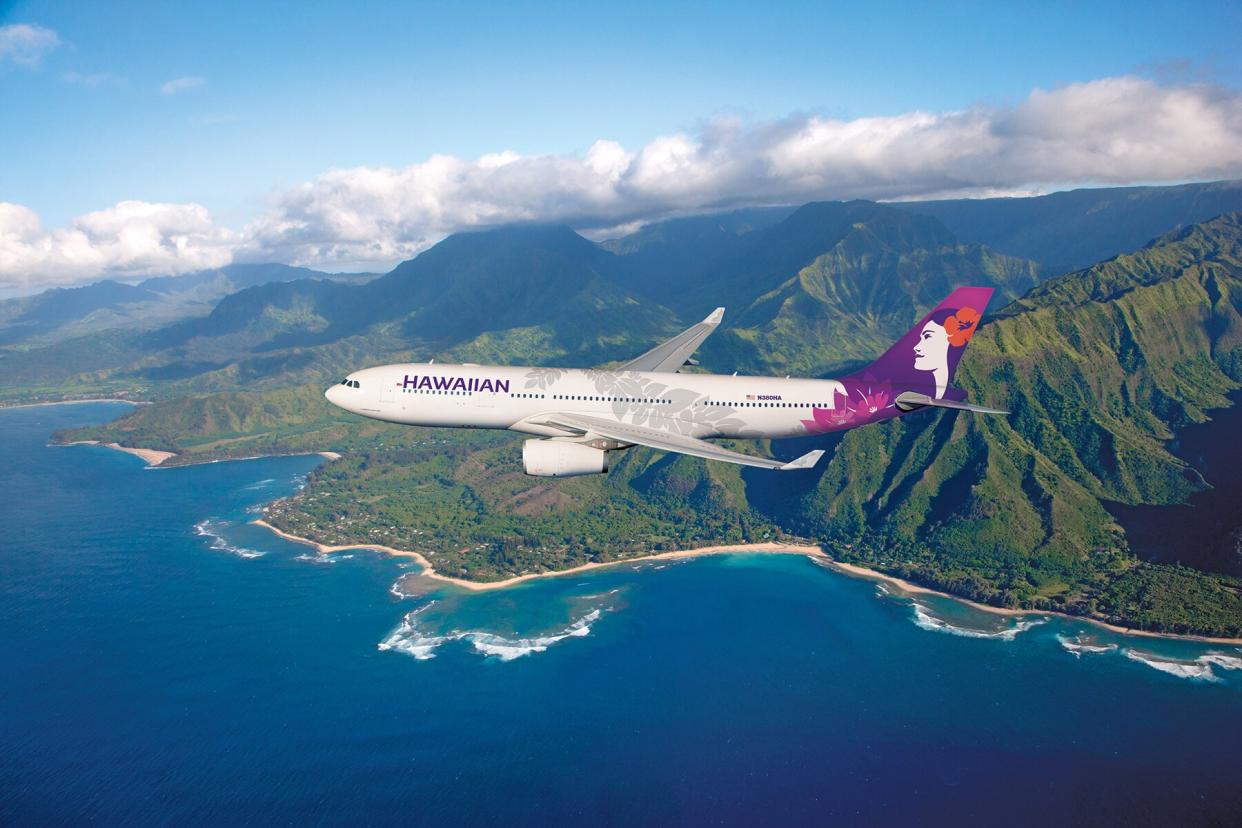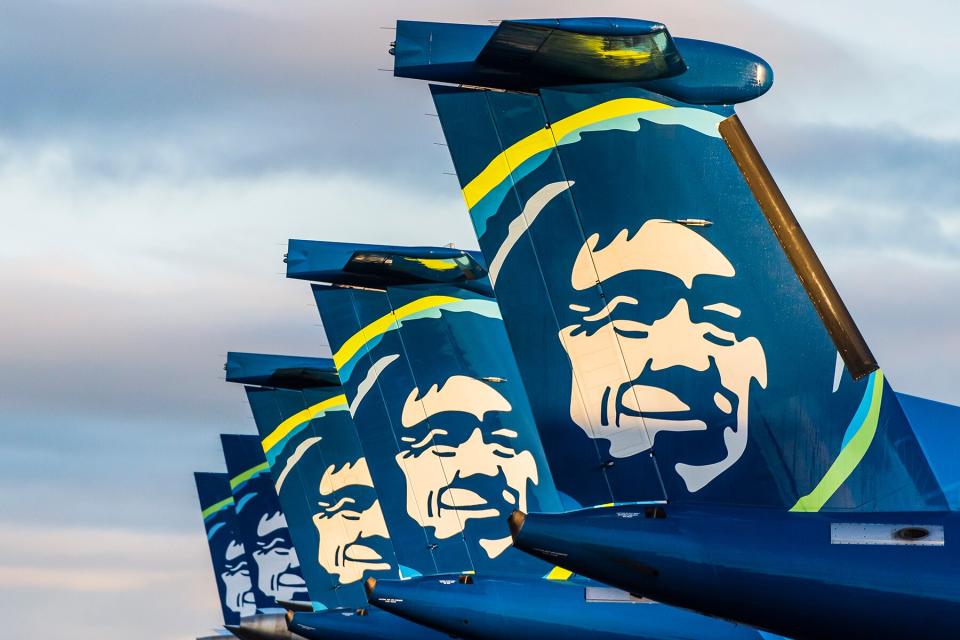9 Best Frequent Flier Programs — and How to Make the Most of Their Benefits

Chad Slattery/Courtesy of Hawaiian Airlines
Every airline in the United States has a frequent flier program, and if you take a few flights a year, it's absolutely worth signing up for them.
Each of these programs includes earning award points or miles that can be redeemed for free flights and upgrades. All you have to do is sign up for a free account with an airline, add your frequent flier number to your reservation, and every dollar you spend with an airline earns you points. In some cases, you can even earn points from hotel bookings, car rentals, or any purchases made with an airline-branded credit card.
But if you fly more frequently than the average person, you can earn elite status with airlines — and that's where the big-time perks come in, from free checked bags to priority boarding to free upgrades.
Find out everything you need to know about the best frequent flier programs for U.S.–based airlines.
Alaska Airlines Alaska Mileage Plan

Courtesy of Alaska Airlines
Alaska Airlines' Alaska Mileage Plan is often highly regarded by both industry pros and the frequent fliers who belong to it. In general, it's very easy to earn miles with Alaska via flight reservations, branded credit card spend, hotel stays, dining reservations, shopping, and even personal or student loans with SoFi, among other methods. (According to the airline, you can earn 30 percent more miles on Alaska than on other airlines for flights of equal length and price.) As for elite status, the airline has a four-tier system, ranging from MVP to MVP Gold 100K — perks include free first class upgrades, extra baggage allowance, and day passes to the airline's lounges, depending on the tier. Better yet, Alaska joined the Oneworld alliance, which means miles can be earned and redeemed on any of the 14 partner airlines, including Qatar Airways, Cathay Pacific, and British Airways. And Alaska has an additional partnership with American Airlines that allows elite status holders to receive reciprocal benefits on both carriers, greatly increasing domestic and international route options.
Delta Air Lines SkyMiles
As with all the major U.S. airlines, Delta's SkyMiles program offers myriad ways to earn award miles that can be spent on flights, upgrades, hotel bookings, and even bottles of Dom Perignon in its Sky Club lounges. Earning these redeemable miles, which never expire, is strictly based on dollar spend. But when you transfer over to Delta's elite program, earning Medallion status is based on a combination of miles flown (Medallion Qualifying Miles, or MQMs) and dollars spent (Medallion Qualifying Dollars, or MQDs). The four tiers of Delta's program offer a range of benefits, most notably free upgrades to Comfort+, first class, and sometimes even Delta One (the airline's lie-flat business-class seat) on domestic and short-haul international routes. Top-tier status holders are even gifted Global Upgrade Certificates, which can be redeemed for long-haul international business-class flights. Miles can be earned and redeemed on most airlines in the SkyTeam alliance, which includes 19 airlines (such as KLM, Air France, and Korean Air) that fly to more than 1,000 destinations around the world.
United MileagePlus

Courtesy of United Airlines
You probably see the trend by now — on United, you can earn award miles in a variety of means, all of which revolve around spending money, whether on flights on the airline and its partners, on other travel bookings, or on airline-branded credit cards. And, of course, those miles can be used to purchase flights, hotel rooms, car rentals, and more. So let's fast forward to the elite status side of United's MileagePlus program; there are four Premier status tiers, which are earned by either the number of flights flown (Premier Qualifying Flights, or PQFs) in combination with a certain dollar spend (Premier Qualifying Points, or PQPs), or purely via dollar spend. The former option requires fewer PQPs, while the latter requires more PQPs. Benefits include free upgrades, free checked bags with a higher weight limit, and PlusPoints redeemable for international business-class upgrades. United belongs to Star Alliance, which has 26 members, including Lufthansa and All Nippon Airways (ANA).
American Airlines AAdvantage
American Airlines completely overhauled its loyalty program in 2022, streamlining AAdvantage into a simpler process. Award miles, which you can use to book flights, have largely remained the same. You can earn those in the traditional ways, like booking travel or using your airline-branded credit card, at a rate of five to 11 miles per dollar spent, depending on your status level. But earning status has changed entirely. Now, American Airlines frequent fliers have just one revenue-based metric to meet in order to achieve elite status: Loyalty Points. They're essentially linked to dollars spent either on American Airlines flights or those of its partners (American is part of the Oneworld alliance), or dollars spent on an airline-branded credit card, but the math for each transaction can get a little complex. Once status is achieved through spend, elites can enjoy most of the same perks as before the loyalty program overhaul — free domestic upgrades, systemwide upgrades for international business class, extra baggage allowance, and multipliers for earning award miles and Loyalty Points, among many others.
Hawaiian Airlines Hawaiian Miles

Rae Huo/Courtesy of Hawaiian Airlines
Hawaiian Airlines has a fairly strong frequent flier program, but we're ranking it lower on the list due to the fact that it's really only beneficial if you live in Hawaii or fly there very, very frequently. As with the big U.S. airlines, redeemable miles can be earned via a variety of travel bookings or spend on branded credit cards, but the key here is that they have a very good redemption rate — that is, you can spend fewer miles on more expensive flights. Though Hawaiian doesn't belong to one of the big three alliances, it does have partnerships with a number of airlines, including JetBlue, Japan Airlines, and Virgin Atlantic. You can both spend and redeem miles with those partners. In the elite part of the program, Hawaiian offers two tiers — Pulani Gold and Pulani Platinum — which are earned based on segments flown or the number of miles flown. Perks include free upgrades, lounge access, and discounted award bookings.
Southwest Airlines Rapid Rewards

Courtesy of Southwest Airlines
You guessed it — frequent fliers on Southwest who are enrolled in the Rapid Rewards program can earn award points by booking travel or using an airline-branded credit card. But earning status on Southwest looks a little different than on some other carriers. On most airlines, you can expedite the process of earning status by booking more expensive first-class or business-class seats. Southwest, however, only has one class of seats. But it does have three different fare types for those seats: "Wanna Get Away" tickets have lower base fares and fewer points earned per dollar, while "Anytime" and "Business Select" tickets have higher base fares and more points earned per dollar. But overall, the gist is the same — you can qualify for status based on spend or on segments flown. Southwest has a three-tier system: A-List, A-List Preferred, and Companion Pass. While the two A-List tiers include typical perks, such as priority boarding and a dedicated customer service phone line, Companion Pass is the real highlight. If you reach this tier of status, you can designate a companion who can fly with you for free (though they'll still have to pay for taxes and fees).
JetBlue TrueBlue

Courtesy of JetBlue
JetBlue's TrueBlue loyalty program is on the leaner side when it comes to perks, both for award points and elite status. Award points are earned in all the usual ways — travel bookings, credit card spend, and so on. But while points can be earned on airline partners, including American Airlines, with whom it has a codeshare agreement, and Emirates, they can only be spent on JetBlue flights. (Eventually, JetBlue TrueBlue members will be able to redeem them on American flights, too, but that program is still rolling out.) Award points can, however, be pooled with family and friends, allowing anyone in your group to tap into the group's pot to book free flights. As for elite status, there are just two tiers, Mosaic and Mosaic+, with the latter being a temporary tier for the 2022 calendar year. Achieving status requires earning a certain number of Mosaic Qualifying Points (based on dollar spend), either alone or in combination with segments flown, or spending a certain number of dollars with your airline-branded credit card. Perks include free checked bags, free inflight alcoholic beverages, and same-day flight changes. The downside of this program is that there aren't free upgrades to Mint, JetBlue's premium class, except for Mosaic members, who receive four upgrade certificates (they're not redeemable on JetBlue's new route to London, though). JetBlue Mosaic and Mosaic+ members do, however, receive some reciprocal benefits on American Airlines due to their codeshare agreement.
Spirit Airlines Free Spirit
We'll be honest, Spirit's Free Spirit loyalty program is pretty basic. But if you find yourself flying the airline a lot, the program's perks can certainly improve the quality of your travel experience. There are just two tiers of elite status, Silver and Gold, which are earned through Status Qualifying Points (SQPs). Earning is pretty straightforward — every dollar you spend earns one SQP that goes towards your status. Once you hit the earning benchmarks, you're rewarded with perks like free seat selection, free checked and carry-on bags (Gold only), and free beverages and snacks (Gold only). The biggest downer about Spirit's program is that status holders aren't given free upgrades to the airline's "premium" cabin, the Big Front Seat. On the plus side, points earned in the program can be pooled with family and friends and redeemed for free flights, just as with JetBlue.
Frontier Airlines Frontier Miles
Frontier ranks last on our list primarily due to the fact that it has a more limited international route network than Spirit (though it does have more domestic routes). It also lacks premium seats — there is "stretch seating" with extra legroom, but those seats are otherwise the same as standard economy. But as with Spirit, the perks for the airline's elite status holders do make a big difference in the quality of your travel experience. Frontier has a three-tier system — Elite 20K, Elite 50K, Elite 100K — which are earned by dollar spend, flights flown, or distance flown. Status provides benefits like free carry-ons and checked bags, free seat assignments, and priority boarding, depending on the tier. Where Frontier does eclipse Spirit, however, is that status holders can score free upgrades to "stretch seating." It, too, offers family and friends points pooling for flight redemption.

